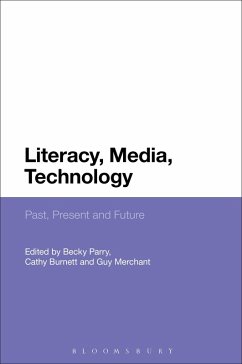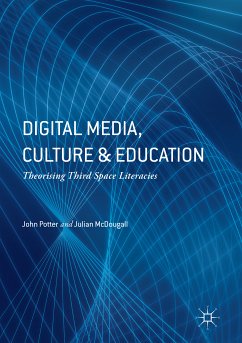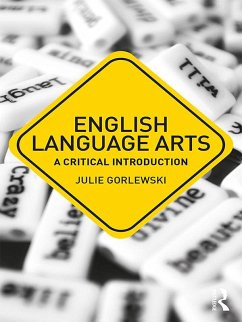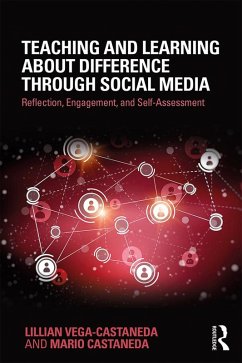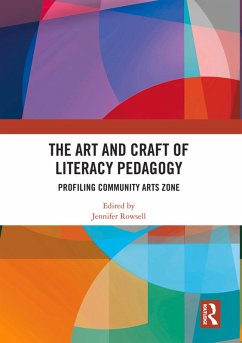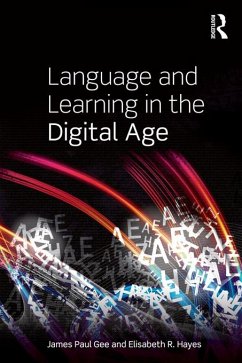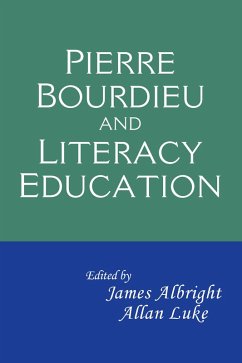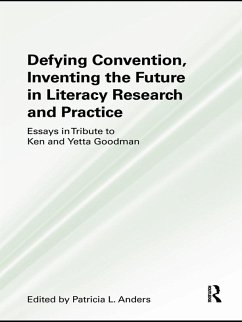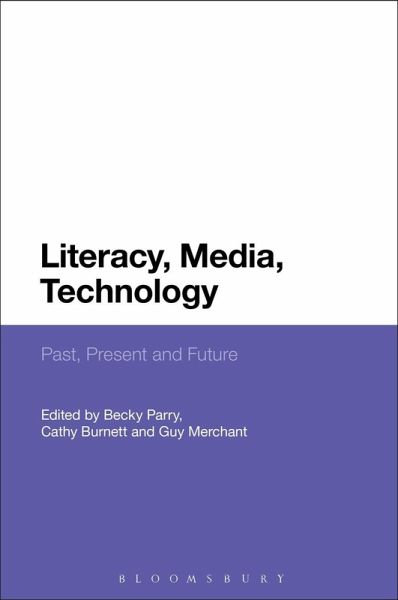
Literacy, Media, Technology (eBook, PDF)
Past, Present and Future
Redaktion: Parry, Becky; Merchant, Guy; Burnett, Cathy
Versandkostenfrei!
Sofort per Download lieferbar
29,95 €
inkl. MwSt.
Weitere Ausgaben:

PAYBACK Punkte
15 °P sammeln!
Literacy, Media, Technology considers the continued significance of popular culture forms such as postcards, film, television, games, virtual worlds and social media for educators. Following multiple pathways through technological innovation, the contributors reflect on the way in which digital and portable devices lead to new and emerging forms of reading, participating and creating. Rejecting linear conceptualisations of progression, they explore how time is not linear as technological advances are experienced in multiple ways linked to different personal, social, political and economic traj...
Literacy, Media, Technology considers the continued significance of popular culture forms such as postcards, film, television, games, virtual worlds and social media for educators. Following multiple pathways through technological innovation, the contributors reflect on the way in which digital and portable devices lead to new and emerging forms of reading, participating and creating. Rejecting linear conceptualisations of progression, they explore how time is not linear as technological advances are experienced in multiple ways linked to different personal, social, political and economic trajectories. The contributors describe a range of practices from formal and informal education spaces and interrogate some of the continuities and discontinuities associated with literacy, media and technology at a time when rapidly evolving communicative practices often meet intransigence in educational systems. The chapters adopt diverse forms: historical perspectives, personal story and reflection, project reports, document analysis, critical reviews of resources, ethnographic accounts, and analyses of meaning-making within and beyond educational institutions. Together, they provide multiple insights into the diverse and fluid relationships between literacy, media, technology, and everyday life, and the many ways in which these relationships are significant to educational research and practice.




